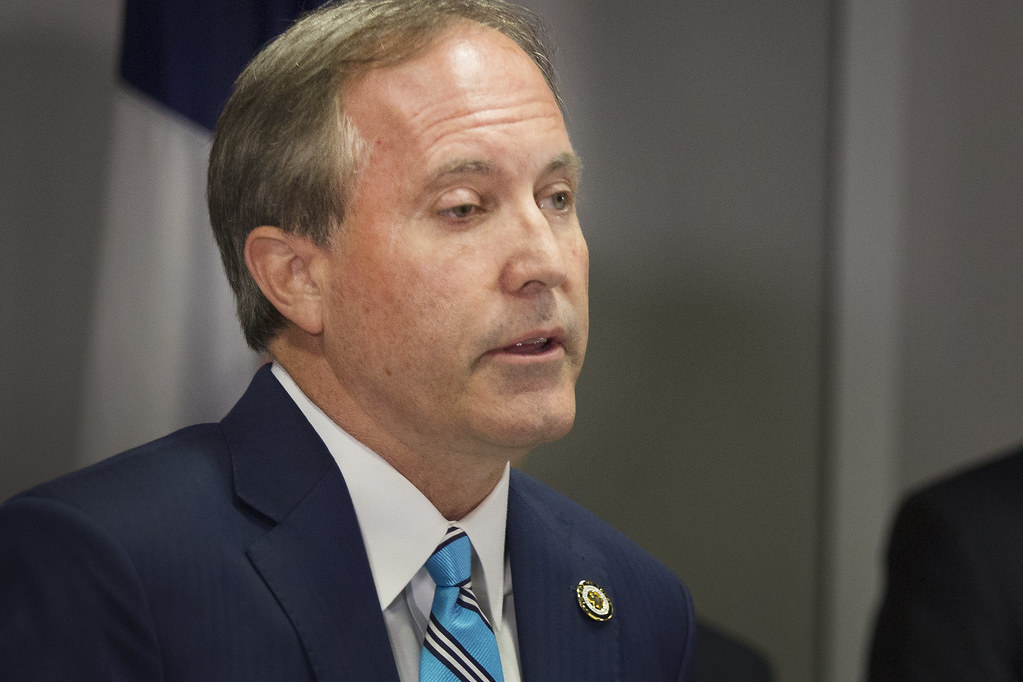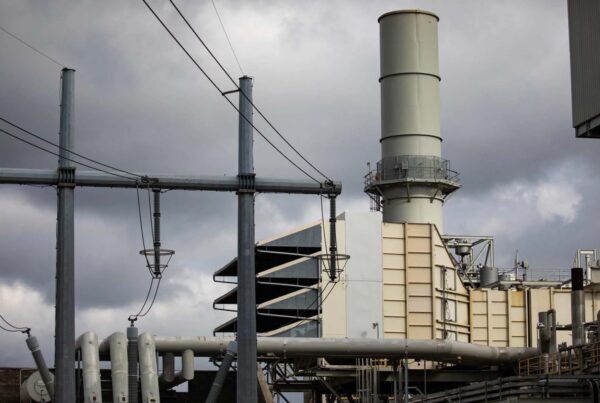Back in 2022, voters in five municipalities in Texas – Austin, Elgin, Killeen, Denton and San Marcos – approved ballot measures that would decriminalize low-level marijuana possession. The initiative was led by Ground Game Texas, a progressive organization whose polity priorities include protections for “workers, wages and weed.”
In all five cities, the ordinances had overwhelming support: 85% of Austin voters were in favor, while Killeen, with the lowest share of votes in favor, still passed the measure with 69% voting “yay.”
Now, Texas Attorney General Ken Paxton is suing to block the ordinances, saying they run afoul of state law. In a press release last week, Paxton said the cities “violate the lawful statutes designed to protect the public from crime, drugs, and violence.”
At least one nonprofit, Decriminalize Denton, has said it will be filing a petition to have Paxton’s lawsuit dismissed on the grounds that it has no legal standing. But according to marijuana law expert Frank Snyder of the Texas A&M University School of Law, Paxton may indeed have a case.
Snyder spoke with the Texas Standard about the ordinances, Paxton’s challenge, and what we can expect to see as the legal fight plays out.
This transcript has been edited lightly for clarity:
Texas Standard: Five Texas cities passed these ordinances in 2022: Austin, San Marcos, Killeen, Elgin, Denton. Remind us what these ordinances do.
Frank Snyder: Essentially, they prohibit police officers in those cities – and other enforcement officials – from going after low-level marijuana offenses such as possession. Essentially, the ordinance says that the cities are de-prioritizing marijuana enforcement.
And what does de-prioritizing mean?
It means, essentially, that while it’s still illegal, and the police still can do it, they should put that at the very bottom of the list and should not, in fact, be arresting people simply for possession of relatively small amounts of marijuana.
Well, as you’re probably aware, the attorney general says he will “not stand idly by as cities run by pro-crime extremists deliberately violate Texas law.” What sort of argument is he making here, that there is something in particular in these cities that is illegal under Texas law?
Yeah, I mean, shorn of the rhetoric, what he’s basically saying is Texas makes marijuana illegal under its Controlled Substances Act and under the federal Controlled Substances Act. Cities like the ones you mentioned have home rule, which allows them to pass ordinances that have the effect of law so long as under the Texas Constitution, they don’t conflict with the laws passed by the Legislature.
These laws theoretically don’t violate that particular provision. But Texas also has a statute that says no municipality may refuse to enforce the drug laws. That was passed back in 1997, actually. And thus these ordinances directly conflict with state law. And the attorney general is arguing that they therefore can’t stand.
» GET MORE NEWS FROM AROUND THE STATE: Sign up for Texas Standard’s weekly newsletters
Well, does Paxton’s lawsuit then hold any legal weight, or is this all about politics? How do you see it?
There may well be politics involved in it, but it looks to me like the suits are very well-grounded. You know, there’s been another suit out, the Bell County-Killeen suit, about whether the county could enforce these things. But ordinarily, the state has the authority to override municipalities’ laws. And therefore, in my view, the suit’s on solid legal grounds.
At least one organization, Decriminalize Denton, is seeking to have this lawsuit dismissed. Where do you see this headed?
Well, they’re making an interesting – I haven’t seen their paperwork, but I’ve heard about it – they’re making an argument that, in fact, it’s not really having any effect, and therefore the suit is moot; there’s no reason to bring the lawsuit.
My view in the courts is that Paxton is likely to prevail. Now, what that entails – I mean, how you go about ordering the city officials to enforce laws that they don’t want to enforce – that’s where things get tricky. Charging someone with not enforcing the law, when in fact, district attorneys have discretion about how to go about their duties, that raises really interesting questions.
These cities, in some respects, don’t seem to be outliers, to the extent that you can go just about anywhere in Texas – go to a truckstop or a convenience store – and you’ll see gummies and and vapes and other products for sale. Many of these products claim to contain THC-9.
It doesn’t seem like there’s a big push in the first place, even in some of the cities that have not passed these ordinances. And I’m just curious about how that lack of enforcement or apparent lack of enforcement might come into play here in these arguments.
I think that’s a really great point. One of the things that’s complicating things is how complicated the marijuana regulations are now. Plants with THC levels above 0.3 are illegal. But if you take hemp and you process it enough, you will get some THC out of it, which is theoretically legal under the federal farm bill.
And so nobody really has figured out exactly where the line is on these products. And they’re flooding the market, which makes it very difficult for police to spend time, you know, wandering through convenience stores, looking for products like this.
And so the advantage of a low-level enforcement prohibition is that it stops police from taking lots of time trying to figure those things out. So that’s what the voters presumably had in mind when they passed these ordinances.












